(The nature of this blog is presented in the spirit of 19th Century writers who published their work in monthly instalments.)
FRAGMENTS BROKEN WHOLE
By Amber Poole-Kieniewicz
We buried Mimi last week beneath “the circle of ancestors and poets”, as she referred to the cluster of trees outside her bedroom window. “They wrap me up in their arms at night, just as I do you, at bedtime, comforting me, guiding me into the unconscious. It is there, in the midst of the moon, that the dreams come.”
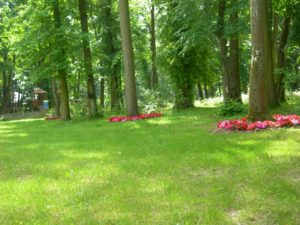
Mimi did not retreat from using the language she loved, the language she found so rich and capable of expressing the way she looked at life. At least this is the way I always knew her.
She often remarked that once I was born, she found the additional courage and inspiration to unabashedly step into her own life. Truly, unequivocally, step in. Perhaps it was circumstantial and would have happened anyway, she would tell me when I grew old enough to understand; even so, she was very specific about localising this point of growth within the first year of my birth. She often said this was when she made the conscious decision to completely liberate herself. At the same time, she made a promise that she wouldn’t ever, ever, not once project any kind of expectation upon me that would preclude me from living my own life just as my own soul saw fit. Even if I disregarded the presence of soul or discredited what she valued, what she considered worth preserving, worth protecting, if it would turn out that way she would still stand alone and simply be grateful for the day I was born. Nothing more, nothing less.
I’m not sure why my birth awakened this strength in her nor am I aware the degree to which she suffered as she said goodbye to what was no longer relevant in her life. The sacrifices she made were not insignificant.
“It didn’t happen overnight,” she said. “It was gradual. I think the archetype of ‘grandmother’ required something more of me than even motherhood.” It required my total independence in a way that is likely impossible for the mother.”
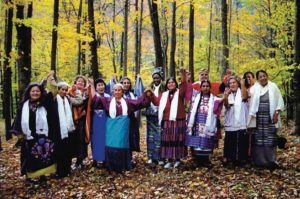
Mimi was one of the most important people in my life. My parents were superb in the way they raised me, but sometimes, even though I knew how heartfelt they were, their decisions for my life ran counter to my desires. Mimi had a way of putting their decisions into perspective, in a way that didn’t threaten my autonomy. She had a way of enlarging things so that I could see them more clearly.
Fortunately, I do value what she valued and see the importance of her life’s work and commitment to not forget the contribution of Carl Gustav Jung and those who explored the human psyche alongside him and then others who did so through his volumes of Collected Works. Her insistence to provide workshops whose focus was on the search of meaning prevailed when others in the community favoured weddings and anniversary parties simply because they thought it would yield fast cash.
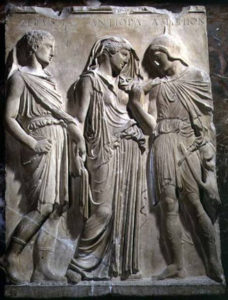 She died just as she lived: enthusiastically, fearlessly. Or what seemed fearless to those of us standing at the bedside. Deep within there might have been trepidation, therefore all I can say for certain is she didn’t appear to struggle with her death. She didn’t fight the inevitable and went to sleep peacefully on Saturday morning in the heat of the summer sun in the bedroom where my great-grandparents slept when visiting The Sichow House and Library.
She died just as she lived: enthusiastically, fearlessly. Or what seemed fearless to those of us standing at the bedside. Deep within there might have been trepidation, therefore all I can say for certain is she didn’t appear to struggle with her death. She didn’t fight the inevitable and went to sleep peacefully on Saturday morning in the heat of the summer sun in the bedroom where my great-grandparents slept when visiting The Sichow House and Library.
A few months before she died she said she’d put something up for me like one might put back jewellery or china and crystal and that it was waiting for me at the bottom of the pudełeczko, the old chest where I played dress up as a child. She asked that I not be tempted to peek until after she was gone. Such a thing I didn’t want to even consider, the loss of Mimi, so I was content with whatever it was could simply decompose in that place, forever untouched, because as long as it rested at the bottom of the dress up box, Mimi was still alive.
She left very specific instructions about how we were to care for her at the end of life and how her body was to be buried.
“It’s a small miracle, Kochana, that I do love and trust you with my entire being,” she’d say to me when she was fit and moving about Sichow preparing for cultural events and workshops. “It could have gone completely upside down/inside out. It might have been that I didn’t like you at all or you me. What fortunate women we are.”
I was the point person, the confidante. She told me everything about how she envisioned the future of Sichow (pronounced: She-hoof). Like a blueprint or a map, she revealed her wishes down to the type of gravel used on the drives. Mimi took charge of the property in the same way as had the women before her, infused with the same pioneering spirt of her own ancestral heritage: the women who settled West Texas in the early 1900’s.
But let me stop here. You must be wondering what it was she’d left for me at the bottom of the dress up box. The pudełeczko.
The most incredible gift one can leave. She left me letters, diary entries, unfinished stories, small sketches, pieces of fabric, all that was relevant to her thirty plus years at The Sichow House and Library, formerly known as Dom i Biblioteka Sichowska.
Witamy Serdecznie. Welcome.
Welcome to the place where the soul of Charlotte Augusta “Gus” Parker, seeded, ripened and enriched all our lives.
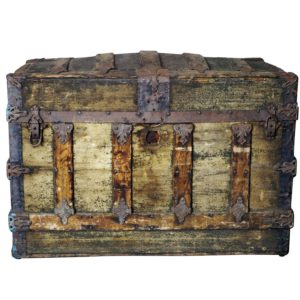
(There is no placement order to what I found in the dress up box as many pieces are not dated. I like this one, so I thought I’d begin here with, Grandmother Spider).
Unfinished Story
Men come and go like the waves of the sea. A tear… and they are gone from our longing eyes forever. Even the white man, whose God walked and talked with him, as friend to friend, is not exempt from the common destiny. We may be brothers after all. We shall see. Speech by Chief Seattle, as recorded by H.A. Smith for the Seattle Sunday Times, October 29, 1887.
Grandmother Spider was tired. She was even too weak to spin her web. It had been a long time since she had carried the sun upon her back which had brought the much-needed warmth and light to the animal kingdom. A long time ago when her legs were stronger and she was able to carve a small bowl from a lump of clay she quietly made her way through the narrow tunnel to the other end where the sun was kept. The guardians of the sun did not see her pick off a piece of this radiant fire and put it in her bowl because she was too small to see. Nor did they hear her return to the other side with this wondrous gift, but she did and there was a great rejoicing in the land. But, like I said, that was a long time ago and now there is a different kind of darkness that prevails in her kingdom; a kind of darkness that cannot be warmed or lightened by the sun.
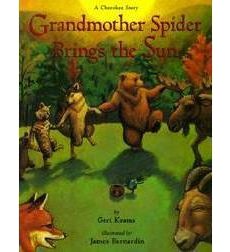
“It is a matter of the heart,” she explained to the Keepers of the Sacred Circle. “When the heart hardens and can no longer remember what is of true value, then protectors need to come. That is why I have come to you, to petition the protectors.
“I see,” said the elder Keeper, contemplating the gravity of such a situation. “What do you propose, Spider Grandmother? You may be tired, but you are still very wise.”
“What comes to mind are the years of the grasslands, when man was introduced to the animal kingdom. He came forth as a nomad and worked in harmony with the land. The women gathered edible roots and berries, spun and wove wool, raised children and carried water. The men hunted. They fished and kept their traditions alive through ceremony, story and dance. Man had a better balance then between wisdom and instinct. He was humble and had not forgotten where he came from. He respected the land and the animals as a guest would respect his host. I don’t know where things went so horribly wrong, but today it’s quite a different story. I have seen men kill other men, women and children by the thousands; by the millions and come away thinking it reasonable to do so. They kill each other with such ease, with so little effort that it seems to have become natural to them. If for no other reason than this, I believe the protectors are urgently needed.”
“Yes, The Great Mother of the World Tree is aware of this senseless slaughter, but because we live in a place without space or time we are helpless to influence the affairs of Man unless he comes to us in a dream,” replied a second elder.
“It’s not enough to come to man in his dreams. We must send the protectors,” insisted Grandmother Spider. “Don’t you see that Man has lost his relationship to the land and thinks he has ultimate power over the animal kingdom? If he goes on like this, there’s a chance that the earth will cease to bless us.”
“Then we must call upon the Great Mother and announce your plan,” advised the elder keeper. “But remember, the protectors are carriers of pure light, the very thing Man fears most. “
Grandmother Spider and the Keepers of the Sacred Circle gathered together in a field of barley brushed golden by the sun. Under a blue sky streaked in high white clouds a cool, steady wind gently blew. The rolling hills of purple heather rested beside them and the group concentrated their collective thought on the desire to consult with The Great Mother. Moored in their perfect union, they began to chant the deep sound that dwells at the back of the throat, the origin of vibration, the sound that reflects the heartbeat of the Great Mother of the World Tree. They chanted until it became strong enough to push back the tender grain beneath their feet and expose a labyrinth of such majesty and color as can’t be described. As they walked the spirals of the labyrinth, a natural vortex appeared nearby, a whirling mass of water producing the thunderous noise and movement of an earthquake. The Great Mother of the World Tree had been called upon and rose up from the center of this cardinal point. When the water settled, there before them was a woman without age, neither young nor old, hair of onyx, skin of pearl, eyes of the blue star sapphire, whose body merged from the waist down with the sprawling trunk of a colossal tree. A swan was there at her side.
“Keepers, you have called,” she said gently.
“Thank you for hearing us, Great Mother. Spider Grandmother has come to report a vast darkness that has befallen the earth and to ask that the protectors be sent.”
“I have nothing left for Man but the protectors,” she remarked. “Are you prepared to ask for such favor?”
“I understand how precious they are and I wouldn’t have come if I could have managed myself, but the darkness is strong and I am tired.”
“The protectors are a last resort,” cautioned The Great Mother. “There is no guarantee they can persuade Man to think differently. Man has to want that for himself. The protectors can only preserve such goodness the length of a lifetime. If they fail to influence their surroundings then darkness will surely triumph.”
“It would be careless not to try,” argued Spider Grandmother. As it is time for me to join you in spirit, I ask for these twelve protectors in my place. They will be born from the eight legs of my body and will tumble down into eight different parts of the world. There must be four sets of twins, as in some places the suffering is unbearable and demands the protection of two.
I fear that if certain virtues are not protected against the ignorance of Man, there will be no integrity or goodness left for the children.”
“Quite right,” agreed the Great Mother. “But I have sent miracles. I have stormed the planet as well as bathe it in light. I have encouraged harvests of plenty and have myself fought against the darkness to prevent shortage, but man will not stop the killing and his heart is full of such greed and malice. It is most troubling. I do not know what he seeks.”
“Man seeks what he can dominate and is endlessly surprised when once he’s made his conquest his heart does not deliver peace,” asserted Spider Grandmother.
“What is it you wish to protect?” asked the Great Mother.
“I have given centuries of thought to the problem and this is what I propose,” Grandmother Spider answered.
“Two will be sent to protect the brokenness in man, for only a broken heart can give birth to compassion.”
“Two will be sent to protect forgiveness, for only the man who forgives will be free of his bitterness.”
“One will be sent for the ancient art of listening, for it is in the hearing of the story that man comes to understand himself.
“One will be sent for service; to sow in others what joy comes in washing the feet of another.”
“Two will be sent to protect humility, for only the man who humbles himself before the mystery of the divine can accept the love of the Creator.”
“One will be sent for acceptance as in tolerance comes tranquillity.”
“Two will be sent for the children for whom the kingdom of heaven belongs.”
“And finally, there is the one sent to restore the garden and the table so that man might make his way back to the family; to his right nature.”
When Grandmother Spider finished speaking, The Great Mother raised her arms over the heads of those gathered and said, “My gift to the protectors will be my grace.”
With this blessing, The Great Mother released the souls of the protectors and returned to the center of the earth. The vortex disappeared, the field of barley raised its grain to cover the labyrinth and Grandmother Spider spun her final web of silvery silk. She set down her eight legs, two at each of the four corners of the land and the four elements of earth, air, fire and water fertilised her abdomen where the seeds of the twelve protectors took sprout. She died into spirit like this, pregnant with the children to be born of her belly. They would be nourished in the silk from her glands and held in a cocoon at the foot of each leg until the one who hears and the one whose heart is open can receive the child and care for it. Each child would come to earth by way of a dream and they would never be divided in their thinking even though they come from different families and some speak different languages, they would always recognise the other as one who carries a virtue and the grace for protecting it.
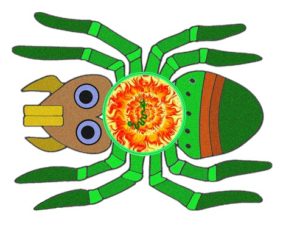
The four seasons of winter, spring, summer and fall waited to catch the cocoons as they fell to earth, for it was the divine plan that each season of the first year would companion the infants to their mothers. In like manner, it was foretold that each child would be born under the sign of an attending planet, assigned to hover over them from maturity until death. It was their connection to the sky and the magnitude of life.
Written on a Scrap of Paper
I’m not sure if it’s by the dexterous hand of a true genius or an artless stroke of luck, an enigmatic randomness perhaps that determines the start of a story, the beginning, where the writer throws the dart, the gun blast and they’re off kind of beginning or just how one arrives at such a place in the portrayal of a person’s life considering the incongruent nature of the two, the story lived and the story told as one is at present complete having already arrived at its end and the other restricted to a measurement of space, word and memory.

A Poem
THEY WHISPER MY NAME
Thanksgiving Dinner
They whisper my name like an uninvited guest
I advance no closer than the last memory
“How is she?” the old drunk inquires
as he leans in near to the right side of the one who carries the wound, the secret.
“She’s well,” he replies, but turns his head short, as if distracted by the one to the left,
When all he’s really seeking is asylum from the pain.
Let the sweet potato pie disappear in one pass, let the turkey turn to sandwiches before Friday
Let the children become fitful and require all the attention in this room full of strangers.
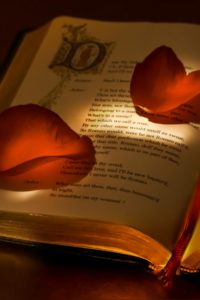
Reflection
Joseph Campbell answers when asked, “What does myth do for us? Why is it so important? To which he replied, “It puts you in touch with a plane of reference that goes past your mind and into your being, into your very gut. The ultimate mystery of being and nonbeing transcends all categories of knowledge and thought. Yet that which transcends all talk is the very essence of your own being, so you’re resting on it and you know it. The function of mythological symbols is to give you a sense of “Aha! Yes. I know what it is, it’s myself.”
Sometimes a great loss must be suffered when the soul cries out for its rightful home, when it instinctively knows that the “Aha” of its heart is not tangible in the birthplace of its feet and it must journey onward for it knows as well that if it doesn’t find its authenticity it shall indeed perish.
There is no map on how to get here, no compass, no train, no science, nor technology, no pathfinder that can pilot the soul on this remarkable and most intimate voyage to that place that transcends all categories of knowledge and thought. I know this well, because quite frankly I’m not sure how I got here; I just know that I belong here and when the tears flow, one isn’t quite sure whether it’s in response to the loss suffered to get here or to the fact that the soul recognises its home with such certainty that like the lover torn from the side of his mistress against his will, when the two finally make their way back to each other, the bliss of return and the anguish of having been apart merge into a deluge of tears.


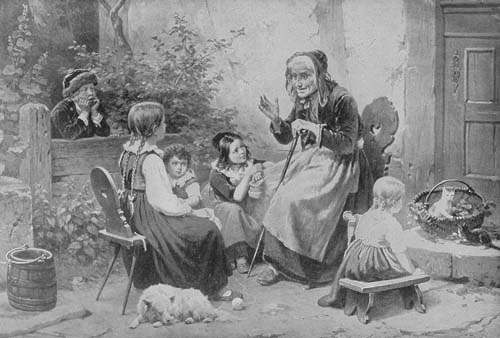
Comments are closed.